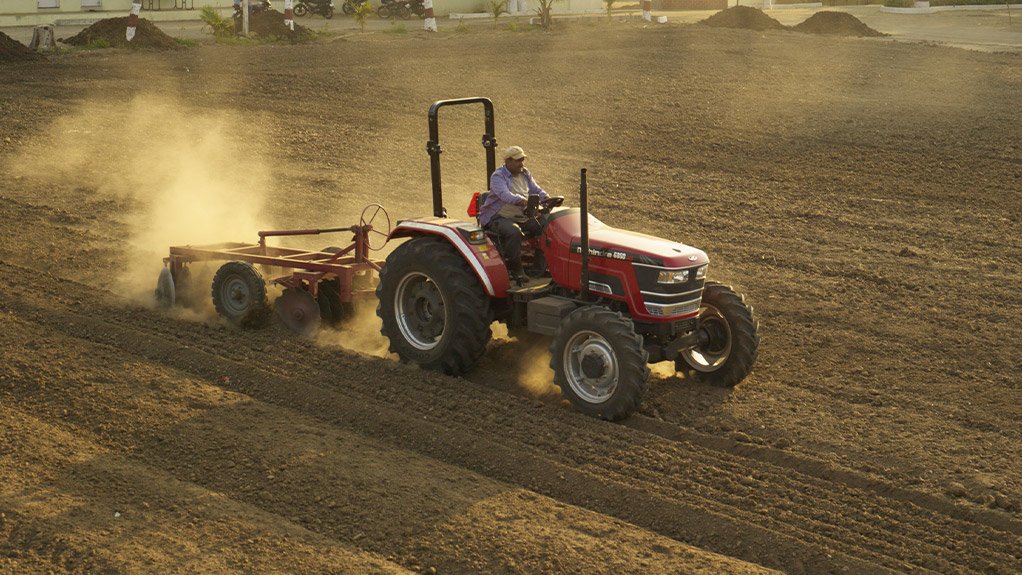Panel pleads for more targeted govt support to boost production and reduce African food imports
Africa spends about $109-billion on food imports every year, including vegetable oils, sugar and grain, despite having ample arable land and other resources to produce these food staples itself, University of Cape Town Centre for African Studies Professor Horman Chitonge has said.
During a discussion at the Manufacturing Indaba, this week, he noted that the continent’s agriculture sector suffered from low labour productivity, with an average labour productivity of only $580 a year, which indicated inefficient use of resources.
This is partly owing to lack of government support and the inability for farmers and agri-processors to access high-end technology and solutions.
Beer Association of South Africa CEO Charlene Louw cited some of the main challenges to producers being more productive on the continent, including South Africa, as being fragmented regulatory systems which became complex and costly for small producers to navigate.
She explained that small-scale beer brewers, for example, had to approach no less than four different government departments, including provincial government, for different aspects of regulation and compliance.
Louw added that there was also a lack of targeted support programmes for small-scale exporters, which could have helped to improve productivity and the use of more advanced technology.
Both Louw and Chitonge underscored the immense potential that agriculture held for economic growth and job creation.
Chitonge cited the example of Nigeria having established special economic zones for agricultural exports, which had helped to uplift the country’s agricultural capability, food security, import dependency and rural economies.
As the African Continental Free Trade Area takes shape, there was a sense of urgency on proactive actions that could be taken to address some of the challenges faced on the continent, especially given’s agriculture’s forward linkages to other industries, he said.
As a practical example, aggregation company SE Holdings CEO Mpumi Maesela said her firm had been focused on providing aggregation and value chain solutions for farmers.
The company’s efforts had successfully created secondary economies in mining communities, for example, by garnering technical and financial assistance from partners such as Tiger Brands and Exxaro Resources.
SE Holdings focuses on supplying farmers with practical technologies that address on-the-ground issues, including drones for fertilisation and monitoring.
Maesela said it would be helpful for development finance institutions to develop a risk calculation model to assess and mitigate the risks for different categories of farmers – subsistence, emerging and commercial.
She emphasised the need for technology and infrastructure to improve productivity in African agriculture, particularly innovative solutions tailored to African small-scale farmers as current technologies were often too expensive.
All the experts advocated for more government commitments to agri-led economic development and State intervention in supporting technology adoption, especially as technology can help farmers meet international standards for export and achieve compliance with local requirements for more market access.
“The potential for small-scale exporters to contribute to the economy is immense. More structured support programmes for small-scale producers are necessary, including better interactions between government and business to support smaller producers,” the panel members concurred.
Article Enquiry
Email Article
Save Article
Feedback
To advertise email advertising@creamermedia.co.za or click here
Press Office
Announcements
What's On
Subscribe to improve your user experience...
Option 1 (equivalent of R125 a month):
Receive a weekly copy of Creamer Media's Engineering News & Mining Weekly magazine
(print copy for those in South Africa and e-magazine for those outside of South Africa)
Receive daily email newsletters
Access to full search results
Access archive of magazine back copies
Access to Projects in Progress
Access to ONE Research Report of your choice in PDF format
Option 2 (equivalent of R375 a month):
All benefits from Option 1
PLUS
Access to Creamer Media's Research Channel Africa for ALL Research Reports, in PDF format, on various industrial and mining sectors
including Electricity; Water; Energy Transition; Hydrogen; Roads, Rail and Ports; Coal; Gold; Platinum; Battery Metals; etc.
Already a subscriber?
Forgotten your password?
Receive weekly copy of Creamer Media's Engineering News & Mining Weekly magazine (print copy for those in South Africa and e-magazine for those outside of South Africa)
➕
Recieve daily email newsletters
➕
Access to full search results
➕
Access archive of magazine back copies
➕
Access to Projects in Progress
➕
Access to ONE Research Report of your choice in PDF format
RESEARCH CHANNEL AFRICA
R4500 (equivalent of R375 a month)
SUBSCRIBEAll benefits from Option 1
➕
Access to Creamer Media's Research Channel Africa for ALL Research Reports on various industrial and mining sectors, in PDF format, including on:
Electricity
➕
Water
➕
Energy Transition
➕
Hydrogen
➕
Roads, Rail and Ports
➕
Coal
➕
Gold
➕
Platinum
➕
Battery Metals
➕
etc.
Receive all benefits from Option 1 or Option 2 delivered to numerous people at your company
➕
Multiple User names and Passwords for simultaneous log-ins
➕
Intranet integration access to all in your organisation



















